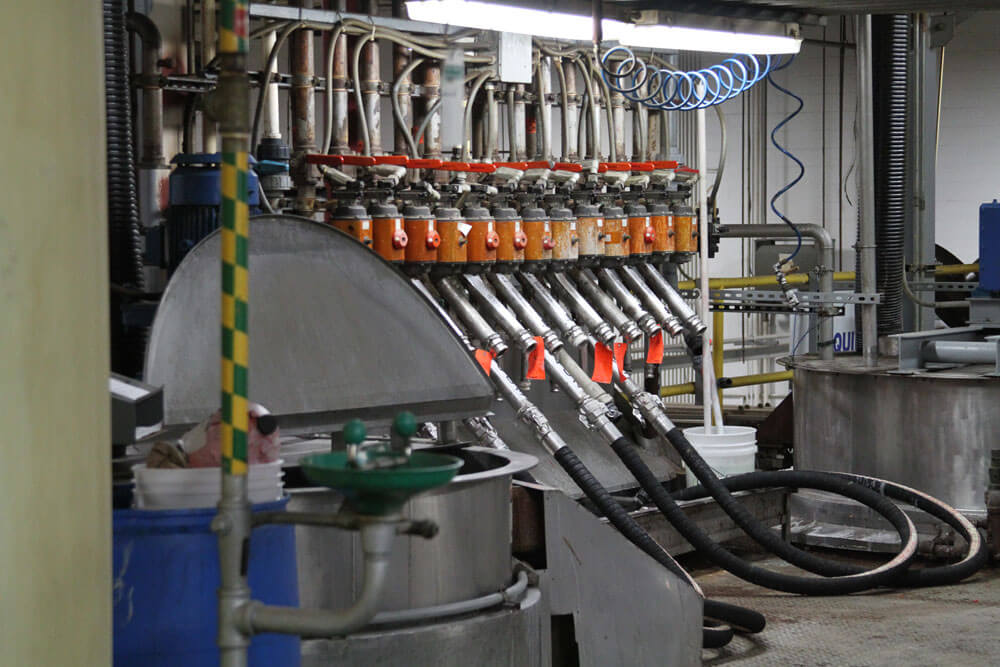
In today’s fast-paced industrial landscape, the demand for specialized manufacturing processes has skyrocketed. One sector that has significantly benefited from this trend is chemical contract manufacturing. This industry segment, which involves outsourcing chemical production to third-party manufacturers, has become a cornerstone for many businesses looking to optimize their operations, reduce costs, and accelerate time-to-market.
What is Chemical Contract Manufacturing?
Chemical contract manufacturing refers to the process where companies outsource the production of chemicals to specialized third-party manufacturers. These contract manufacturers possess the expertise, equipment, and facilities to produce chemicals on behalf of their clients. This arrangement allows companies to focus on their core competencies, such as research and development, marketing, and sales, while leveraging the manufacturing capabilities of their partners.
Benefits of Chemical Contract Manufacturing
- Cost Efficiency: One of the primary advantages of chemical contract manufacturing is cost efficiency. By outsourcing production, companies can avoid the substantial capital investments required to build and maintain chemical manufacturing facilities. This cost-saving measure allows businesses to allocate resources more effectively and improve their overall financial performance.
- Access to Expertise: Contract manufacturers specialize in chemical production, bringing a wealth of expertise and experience to the table. They employ highly skilled professionals who are well-versed in the complexities of chemical processes, quality control, and regulatory compliance. This expertise ensures that products are manufactured to the highest standards, minimizing the risk of errors and defects.
- Scalability: Chemical contract manufacturing offers unparalleled scalability. Whether a company needs a small batch of specialty chemicals or large-scale production, contract manufacturers can adjust their production volumes to meet demand. This flexibility is particularly valuable for businesses experiencing fluctuating market conditions or seasonal variations.
- Speed to Market: Time-to-market is a critical factor in today’s competitive environment. Chemical contract manufacturers can expedite the production process, helping companies bring their products to market faster. This speed advantage can be a game-changer for businesses looking to seize market opportunities and gain a competitive edge.
- Regulatory Compliance: Navigating the complex web of regulations governing chemical production can be daunting. Contract manufacturers are well-versed in regulatory requirements and ensure that all products comply with relevant standards. This compliance expertise reduces the risk of regulatory issues and associated penalties.
Applications of Chemical Contract Manufacturing
Chemical contract manufacturing serves a wide range of industries, each with its unique requirements and challenges. Some of the key sectors that benefit from this approach include:
- Pharmaceuticals: The pharmaceutical industry relies heavily on chemical contract manufacturing for the production of active pharmaceutical ingredients (APIs) and intermediates. Contract manufacturers provide the necessary infrastructure and expertise to produce high-quality pharmaceuticals while adhering to strict regulatory standards.
- Agriculture: In the agricultural sector, chemical contract manufacturing is used to produce pesticides, herbicides, and fertilizers. These products play a vital role in modern farming practices, enhancing crop yields and protecting against pests and diseases.
- Specialty Chemicals: Specialty chemicals, which are used in various applications such as coatings, adhesives, and cleaning agents, are often produced through contract manufacturing. This approach allows companies to meet the diverse needs of their customers without investing in specialized production facilities.
- Consumer Goods: The production of chemicals for consumer goods, including personal care products, household cleaners, and cosmetics, can be outsourced to contract manufacturers. This ensures consistent quality and allows companies to focus on branding and marketing.
Choosing the Right Chemical Contract Manufacturer
Selecting the right chemical contract manufacturer is crucial for the success of any outsourcing arrangement. Companies should consider several factors when making this decision:
- Experience and Expertise: Look for a contract manufacturer with a proven track record in the relevant industry. Their experience and expertise will ensure that they can meet your specific production requirements.
- Quality Control: Ensure that the contract manufacturer has robust quality control processes in place. This includes certifications such as ISO 9001, which demonstrate their commitment to maintaining high standards.
- Regulatory Compliance: Verify that the contract manufacturer complies with all relevant regulations and has a thorough understanding of the regulatory landscape.
- Capacity and Scalability: Assess the contract manufacturer’s production capacity and scalability to ensure they can meet your current and future needs.
- Reputation and References: Check the contract manufacturer’s reputation in the industry and ask for references from other clients. Positive feedback from satisfied customers is a strong indicator of their reliability and performance.
Conclusion
Chemical contract manufacturing has become an integral part of modern industry, offering numerous benefits to companies across various sectors. By outsourcing chemical production to specialized manufacturers, businesses can achieve cost efficiency, access expertise, scale their operations, speed up time-to-market, and ensure regulatory compliance. As the demand for specialized chemicals continues to grow, the role of chemical contract manufacturing will only become more significant, driving innovation and success in the industrial landscape.








Профессиональный сервисный центр по ремонту бытовой техники с выездом на дом.
Мы предлагаем:сервисные центры по ремонту техники в мск
Наши мастера оперативно устранят неисправности вашего устройства в сервисе или с выездом на дом!